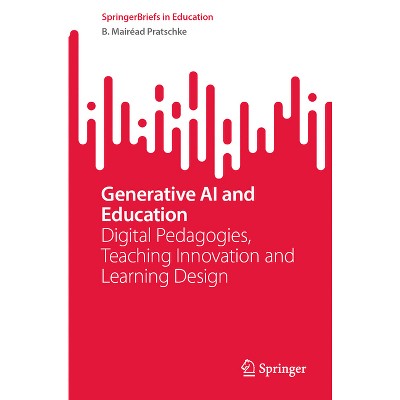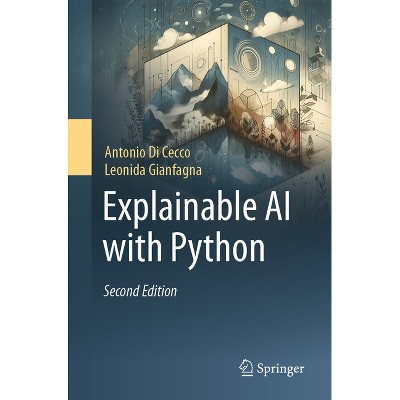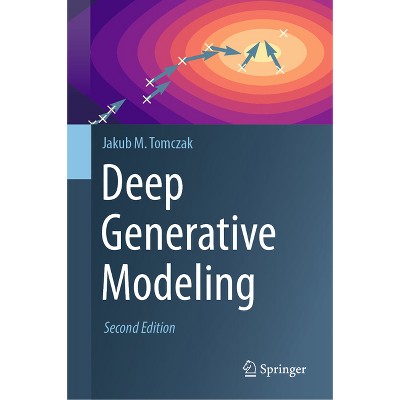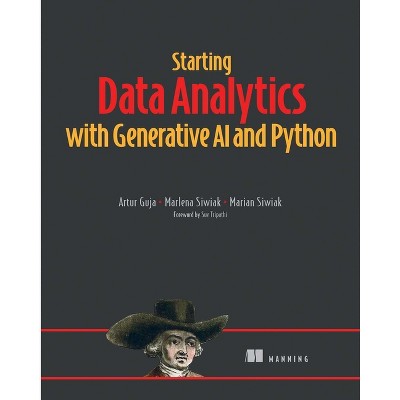Sponsored

Generative AI - by Usman Qamar & Muhammad Summair Raza (Hardcover)
Pre-order
Sponsored
About this item
Highlights
- About the Author: Dr Usman Qamar is Professor of Data Science and GenAI at King Fahd University of Petroleum and Minerals, Saudi Arabia.
- Computers + Internet, Intelligence (AI) & Semantics
Description
From the Back Cover
This textbook covers the foundations, concepts, and implementations of Generative AI. It offers students with the knowledge and skills essential for the evolving field of Generative AI. It covers both the theory and the practical implementation, and every concept is explained with simple and easy-to-understand examples. The implementation of each generative AI model is also part of the textbook.
The textbook consists of four parts. Part 1 which consists of two chapters is an introduction to Generative AI. It provides an exploration of the fundamental concepts underlying the field of generative Artificial Intelligence. It builds a strong foundation for the reader to understand the remaining parts. In the Part 2, all the core concepts of Generative AI like Variational Autoencoders, Generative Adversarial Networks, Normalizing Flow Models Autoregressive Models, Energy-based and Diffusion Models and Large Language Models (LLMs) are covered. In Part 3, applications of Generative AI including World Models, Content Generation with Generative Models and Building Applications with LLMs are discussed. Finally, Part 4, looks at the ethical considerations for the development and deployment of Generative AI models. Chapter-wise complete source codes are delivered as an additional resource. Practical exercises are also included at the end of each chapter.
The textbook was specifically written to enable the teaching of both basic and advanced concepts from one single book. The book is suitable for both undergraduate and graduate students in computer science and engineering. This textbook is a valuable resource for students who want to study the domain of Generative AI.
The cover image is AI-generated.
About the Author
Dr Usman Qamar is Professor of Data Science and GenAI at King Fahd University of Petroleum and Minerals, Saudi Arabia. He has over 15 years of experience in Data Sciences, both in academia and industry. He has a Master's in Computer Systems Design from the University of Manchester Institute of Science and Technology (UMIST), UK. His MPhil and PhD are from University of Manchester, UK. He has published extensively in the domain of AI and Data Science which include 27 Book Chapters, 65 Impact Factor Journal Publications and over 100 Conference Publications. He has also written 5 books which have all been published by Springer including textbooks on Data Science and Text Mining. He is also Editor-in-Chief of Informatics of Medicine Unlocked as well as Associate Editor of Information Sciences, Applied Soft Computing, Engineering Applications in AI, Applied Intelligence and AI & Ethics. In 2024, the President of the Islamic Republic of Pakistan conferred him the prestigious Government of Pakistan Civil Award "TAMGHA-I-IMTIAZ (Medal of Excellence)" for exceptional achievement and excellence in Data Science & AI.
Dr Muhammad Summair Raza is an Associate Professor and Chairman, Department of Software Engineering, University of Sargodha, Pakistan. He has a PhD specialization in Computer Software Engineering from the National University of Sciences and Technology, Pakistan. He completed his MS in Software Engineering from the International Islamic University, Islamabad, Pakistan in 2009. He has published various papers in international-level journals and conferences. He is also the author of four internationally published books
Shipping details
Return details
Trending Book Pre-Orders

















